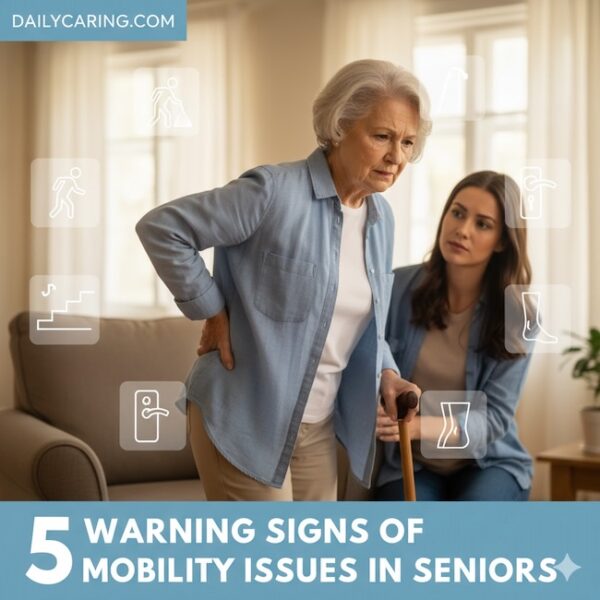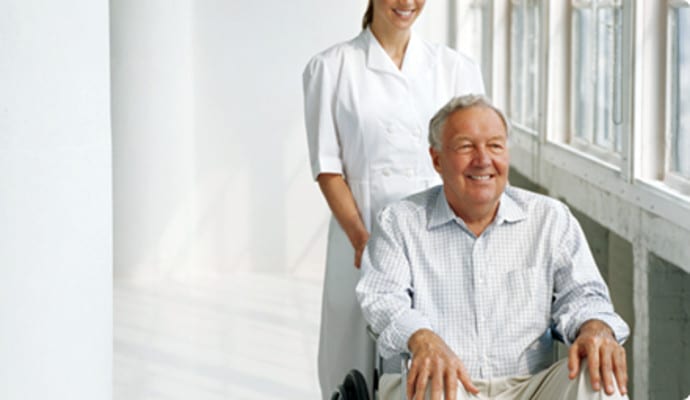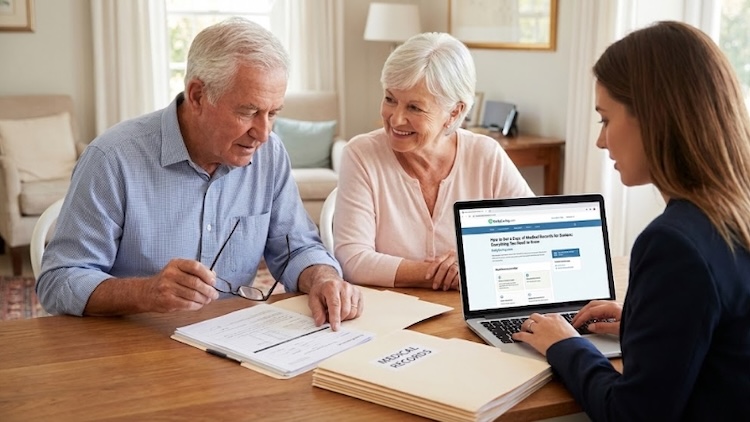Mobility is essential for aging independence. But many people don’t find out about their older adult’s developing mobility problems until they get seriously injured in a fall. To help you take action and improve the situation before an injury happens, Vive Health shares five key warning signs of mobility issues.
When an older adult takes a fall and breaks a hip or develops a health condition like Parkinson’s disease, it’s clear that they’ll be dealing with mobility issues – even if they’re temporary.

But it’s not just disease or injury that leads to difficulty standing and walking. The natural effects of aging, such as muscle loss, balance issues, and joint stiffness, contribute to reduced mobility.
However, your older adult doesn’t have to wait for a fall to realize they’re developing mobility issues. There are warning signs that can indicate potential or developing mobility problems.
Being aware of and noticing these signs helps you take steps to improve your older adult’s balance and strength before something happens.
This helps aging adults stay as mobile and independent as possible.
5 Key Warning Signs for Mobility Issues in Seniors
Falling is Becoming a More Frequent Issue
Even if your older adult seems to have bones of steel and never seriously hurts themselves when they fall, they could still be having mobility problems that need to be addressed before they get worse.
Even as few as two falls in a year could indicate that something beyond uneven walkways or cluttered environments is the problem.
People fall when they trip and stumble on something, when their feet are slow to keep up (and drag on the floor), or when they get off-balance and can’t correct their body position in time.
Frequent falls increase the risk for injury, hospitalization, and life-threatening complications.
So even if your older adult hasn’t been seriously injured (yet), fall-proofing their home with grab bars, handrails on stairs, non-slip tub mats, etc., is highly recommended.
It’s also important to ask their doctor to evaluate their mobility.
The doctor can check for underlying health conditions that may be causing problems, assess potential medication side effects, or recommend physical therapy to improve balance and strength.
Avoiding the Stairs Becomes the Norm
Is your older adult quick to say “Let’s take the elevator” when you encounter even a small staircase while out and about? Do you notice them spending more time than usual downstairs in their home?
Stairs can be extra tricky for seniors to travel up and down because they require additional strength, balance, and energy.
If your older adult seems to walk around fairly easily but goes out of their way to avoid stairs, you may want to start talking with them about whether they need extra help or a mobility aid.
If they don’t have any physical difficulties that are making stairs challenging, it could be that a fear of falling is holding them back.
Addressing those concerns will have a positive impact on their long-term mobility.
VIDEO: Prevent Falls with these Mobility Warning Signs
Difficulty with Sitting and Standing
Is standing up from the couch a struggle for your older adult? How about lowering themselves into bed?
Having trouble with sitting and standing is a strong indicator of potential mobility issues. It’s an essential movement in daily life – used when eating, using the restroom, upon waking and sleeping, and more.
Try the quick, simple sit-to-stand exercise with your older adult and note if they have any difficulties. Do they need to hold on to furniture for support? Are they slow or unsteady?
Being aware of a seemingly harmless warning sign like this tells you that it’s necessary to talk with your doctor.
You may want to ask about issues like lightheadedness or dizziness that happen when they stand up or sit down, or ask about strength and balance exercises.
Having More Trouble with Balance
Dizziness and having trouble with balance can be caused by a variety of factors, including medication side effects, low blood pressure, or inner ear issues like vertigo or Meniere's disease.
In addition, issues associated with normal aging, such as impaired vision, joint stiffness, slower reaction times, and muscle weakness, reduce the body’s ability to maintain balance. They can make walking, standing, and other forms of exercise difficult.
To improve mobility, your older adult’s doctor can test their balance and treat underlying problems.
Mobility aids like canes or walkers, along with targeted exercises, can help an older adult with balance issues get around more safely and confidently.
Skipping Exercise for No Good Reason
Exercise isn’t everyone’s favorite activity, but it’s a necessary lifestyle habit that helps prevent chronic diseases and unhealthy weight gain, especially for seniors.
But if your older adult is skipping exercise more and more because they’re tired, sore, or don’t have the energy, they may soon be dealing with mobility issues as well.
Weakness, exhaustion, and other symptoms that keep them from exercising will make it increasingly difficult to walk or stand as much as they once did.
Final Thoughts on Mobility Issues for Seniors
By recognizing these subtle warning signs early, you are taking a decisive, proactive step in safeguarding your loved one's independence. Preventing a fall isn't just about avoiding a physical injury; it's about preserving their confidence and their ability to live life on their own terms.
Your observant eye and willingness to act are their greatest defense. Start the conversation with compassion, and use this knowledge to create a safer home environment today. A few simple changes now can prevent a life-altering incident tomorrow, ensuring many more confident and secure steps ahead.
Recommended for you:
- 6 Age-Related Changes That Increase Senior Fall Risk
- At Home Mobility Test Increases Safety: Timed Up and Go
- 10 Medications That Cause Falls in Seniors: Use with Caution
Guest contributor: Jessica Hegg is the content manager at ViveHealth.com. Interested in all things related to a healthy lifestyle, she works to share valuable information to help others overcome obstacles and improve their quality of life.
About the Author
Jessica Hegg is a manager at ViveHealth.com. Ms. Hegg was also a full-time caregiver for her Mom who had Primary Progressive MS and Epilepsy. She is a freelance writer with a passion for cooking and lives in Austin, TX with her Mom and her wonderful husband. You can find her personal blog about caregiving tips, ideas, and solutions at Givea.Care.














I’m 86 and kept stumbling and falling over – I mentioned it my Doctor last year who recommended me for a NHS “Fall prevention” course lasting 24 weeks. It was really helpful and gave me my confidence back – I haven’t fallen over since
I can thoroughly recommend it.
That’s wonderful! It’s great that you talked with your doctor about your falls. We’re so glad the NHS fall prevention course was so helpful and that you haven’t fallen since then!